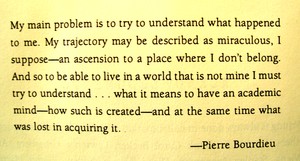matsobane
reach for the lasers
May 7, 2007

Share
Post comment
Like
break the rules?
May 2, 2007
Freewill, Fate, and Causality in Matrix Reloaded
Matrix:Reloaded explores freewill, fate, and causality, three themes that may formulate the very basis of existence.
Causality is a phenomenon whereby one cause is the effect of another. This axiom or assumption forms the foundation of orthodox physics; if all causes are known, then theoretically all effects can be known and predicted with absolute certainty. Causality cannot begin or end itself because, by definition, in a purely linear system1 every cause is the effect of another preceding it, a “causal chain” that extends forever into the past.
In truth, a causal chain is finite; it begins and ends with choice. Freewill is the only true cause; all else is purely effect. Thus, freewill is both beginning and end; causality merely mitigates and facilitates freewill by creating consequence from choice. From a physics standpoint, choice arises when indeterminate quantum states are made definite by the wave-collapsing ability of consciousness2. Nonlinear systems are sensitive enough to translate quantum causes into classical effects, thereby allowing consciousness to initiate linear causal chains extending into the macroscopic world3.
Without multiple choices, there is just causality. When you perceive only one choice or one effect, you become a passive link in a causal chain initiated by someone else. The more knowledge and understanding you have, the more genuine choices you see, and the greater your role becomes as cause rather than effect. It is lack of knowledge that places one under the influence of causality. You cannot change what you cannot see, because without seeing you cannot choose.
Fate is the causal consequence of choices made outside your realm of linear time. Because you do not see your fate, you cannot – or more accurately, you do not—change it. So you become a passive link in the chain of causality initiated by a hyperdimensional source. In the case of fate, that source is your Higher Self, a greater aspect of your being with whom you merge after physical death to review your recent incarnation and plan another. In this planning phase, while merged with the Higher Self you choose the key lessons and events that characterize your upcoming incarnation. Once incarnated, the original choice to learn those lessons has already been made. As the Oracle said in Matrix Reloaded, the point is to understand why they were made and therefore learn the lessons prompted by fated events.
But freewill is not subordinate to fate; quite to the contrary, freewill is the ultimate of precondition of existence. Fate merely orchestrates, while causality executes. Freewill does seem subordinate when it is not applied, as in the case where one does not know one’s fate and therefore makes no choice to alter it. But fate can be changed if it is known.
In their proper places, fate decides what lessons must be learned and why, while freewill decides how they are learned and when. Alternate events can lead to the same lessons learned, so it is not the mundane details of events that are ruled by fate, but rather their core meanings. Because freewill decides the timing as well as the qualitative nature of how lessons are learned, neither timing nor quality of experiences is definite.
Things of a game are real only within the game. Like any game, our reality exists because we consensually create it by setting rules and limitations to define the nature of our mutual interactions. In abstract terms, we place infinity in a box, thus separating former inseparables into a structured reality composed of individual elements obeying definite rules; mathematics as we know it details our consensual restrictions upon infinity4. All mathematical equations include a hidden variable representing the potential influence of freewill. Because freewill is absent in cases where rules are followed, this variab
Share
1 comment
Like
just a thought to consider
May 2, 2007

Share
Post comment
Like
testin testin
Apr 25, 2007

Share
Post comment
Like